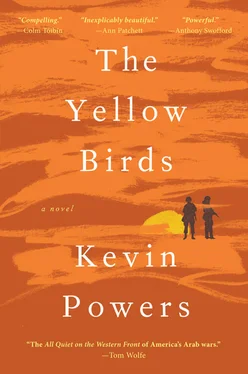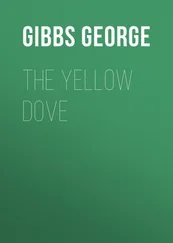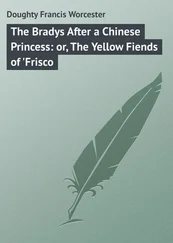The hermit took off his sandals and placed them in the back of the cart. He slowly wiggled his toes, as if to stretch them for his journey. Looking from side to side several times, perhaps to assure himself of his place in the world, he walked to the front of the cart, where his hobbled mule breathed quietly. He gave it a pear, slowly stroking its muzzle as the mule chewed and addressed the man with its black eyes. He walked out into the dusty field toward the lone tree and, finding a large and appropriately angled root, reclined in the shade of its overhanging branches.
I looked at Sterling and shrugged. He shrugged back and called to the hermit from the side of the road, his voice echoing heavily over the short distance in the heat of late morning. Our shoulders hung limp against our sides.
The hermit called back, and as he did, the interpreter related what he said with a precise delay, which added to the confusion, their voices echoing in a way that gave me momentary déjà vu.
“He says that he has come through this place already and does not wish to walk the same way again.” The voice of the man slightly distant fell off before the last words of Pidgin English came. We looked quizzically at the interpreter and he said, “Check over there,” pointing to a patch of vegetation beneath the minaret.
Sterling motioned to the interpreter. “All right, get the fuck out of here. Head back to the others.”
“I don’t know, Sarge. Something ain’t right. This seems off,” I said. “Feels like a setup.”
He looked at me with extraordinary calm. “C’mon, Private, I figured you’d know by now. ‘Ain’t right’ is exactly what we’re looking for.”
I waited.
“Ah, fuck it,” he said. “Only one way to find out.”
We had looked for him hard, this one boy, this one name and number on a list. As the man pointed, our fears had become facts, our hopes smothered and mute. We had, in a strange way, surrendered. But to what, we did not know. The sound of gunfire could still be heard periodically in the distance. The city would be covered with brass casings. Battered buildings would have new holes. Blood would be swept into the streets and washed into gutters before we were through.
We looked at the old man in the field reclining peacefully beneath the shade of the tree and saw for the first time the depth of his age and his black eyes and the mysteries housed in them. His white shift fluttered and he laughed and swatted away a few bees with his hand. We turned and walked toward the copse of trees and bushes that ringed the tower.
At the base of the tower the trees and flowers were thin and tinder-dry. The tower itself rose upward and was slung out precariously over the river. Sterling and I circled the base of the tower in the heat of the nooning sun, its mass appearing out of the dirt and dead flora like some kind of ancient exclamation. We found Murph, finally, covered in a patch of lifeless hyacinth, resting motionless in the shade of the grass and low branches.
Laid up hard and broken-boned in the patch of vegetation that was his journey’s end, his body was twisted at absurd angles beneath the pink and shimmering tower. We moved the brush that either wind or passersby had scattered over him. We uncovered his feet first. They were small and bloody. A supply sergeant could have looked at them and said size seven, but he would not need boots now. Looking to the top of the tower, it was clear that he fell from a window where two speakers had been set up to amplify the muezzin’s call.
Daniel Murphy was dead.
“Not so high up, if you really think about it,” Sterling said.
“What?”
“I think he was probably dead before he fell. It just isn’t that great a height.”
It was truly not a fall from all that great a height: broken bones were broken further, no resistance or attempt to land was made; the body had fallen, the boy already dead, the fall itself meaning nothing.
We pulled Murph free from the tangle of brush and laid him out in some shadow of respectability. We stood and looked him over. He was broken and bruised and cut and still pale except for his face and hands, and now his eyes had been gouged out, the two hollow sockets looking like red angry passages to his mind. His throat had been cut nearly through, his head hung limply and lolled from side to side, attached only by the barely intact vertebrae. We dragged him like a shot deer out of a wood line, trying but failing to keep his naked body from banging against the hard ground and bouncing in a way that would be forever burned into our memories. His ears were cut off. His nose cut off, too. He had been imprecisely castrated.
He’d been with us for ten months. He was eighteen years old. Now he was anonymous. The picture of him that would appear in the newspaper would be of him in Class A’s in basic, a few pimples on his chin. We’d never be able to see him that way again.
I took my woobie out of my pack and covered him. I couldn’t look anymore. Most of us had seen death in many forms: the slick mess after a suicide bomber, headless bodies gathered in a ditch like a collection of broken dolls on a child’s shelf, even our own boys sometimes, bleeding and crying as it became apparent that the sound of a casevac was thirty seconds too far in the distance. But none of us had seen this.
“What should we do with him?” I asked. The words themselves seemed incomprehensible. I drifted in and around the significance of the question, first reckoning with the fact that the decision would be ours. Two boys, one twenty-four, the other twenty-one, would decide what should happen to the body of a boy who had died and been butchered in the service of his country in an unknown corner of the world. We knew that if we brought him back, there would be questions. Who found him? What did he look like? What was it like?
“Fuck, little man. You didn’t have to go out like this,” Sterling said to the body at his feet. He flopped down on his butt into the dry grass and took his helmet off.
I sat next to Murph and began to tremble, rocking back and forth.
“You know what we got to do.”
“Not like this, Sarge.”
“It’s what we do. No matter what. You know that shit, Bart.”
“It’ll be worse.”
“We don’t decide. That’s way above our pay grade.”
“Sarge, you gotta trust me. We can’t let that happen.”
We both knew what that was. There are few real mysteries in life. The body would be flown to Kuwait, where it would be mended and embalmed as best it could by mortuary affairs. It would land in Germany, tucked into a stack of plain metal caskets as the plane refueled. It would land in Dover, and someone would receive it, with a flag, and the thanks of a grateful nation, and in a moment of weakness his mother would turn up the lid of the casket and see her son, Daniel Murphy, see what had been done to him, and he would be buried and forgotten by all but her, as she sat alone in her rocking chair in the Appalachians long into every evening, forgetting herself, no longer bathing, no longer sleeping, the ashes of the cigarettes she smoked becoming long and seeming always about to fall to her feet. And we’d remember too, because we would have had the chance to change it.
He stood up and started pacing. “Let’s just think this through a minute,” he said. “Let me get a smoke.”
I gave him one and lit one for myself. My hands were shaking and my lighter wouldn’t stay lit in the wind and the wind blew the woobie and uncovered what was left of Murph’s face. Sterling stared at the empty sockets. I put the blanket back. Minutes ticked into the past. A few birds darted in and out of the brush and sang. The sound of the river became clearer.
“You better not be wrong about this.”
Читать дальше












